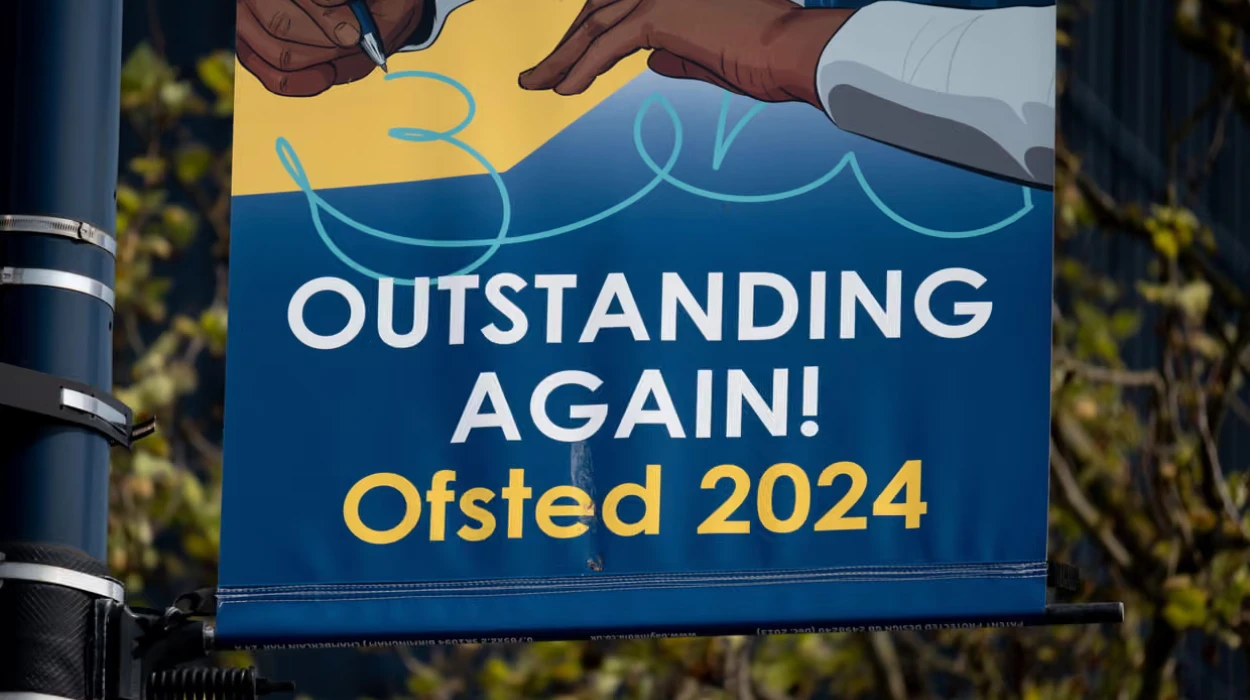UK (Parliament Politics Magazine) – Ofsted’s revised inspection framework faces criticism over vague language and neglect of special needs, drawing concern from school leaders and unions.
As reported by The Guardian, school leaders and DfE officials described the proposals as vague, outdated, and superficial ahead of Ofsted’s final approval.
What changes are Ofsted making to rebuild trust in school inspections?
Ofsted has reignited its school inspection reforms following earlier criticism, revealing changes that include renaming grading terms and reducing evaluation areas from nine to seven.
However, the revisions may not ease tensions with teachers in England, many of whom remain unconvinced by the proposed framework.
The update forms part of the government’s plan to introduce a more transparent “report card” framework for school inspections.
It follows mounting backlash over harsh labels like “inadequate,” especially after the 2023 death of headteacher Ruth Perry.
Education Secretary Bridget Phillipson is under pressure as reforms to Ofsted’s inspection system face delays and criticism. She’s also leading a curriculum review and changes to special needs education, both expected to be published this autumn.
Ofsted’s executive board will review fresh reforms to its inspection framework this week. One key change includes replacing the term “secure” with “expected standard.”
Ofsted has revised its grading system, changing the top-tier label from “exemplary” to “exceptional.” “Strong” has been updated to “strong standard”, while “causing concern” is now “urgent improvement.”
The reformed framework trims the number of inspection areas, merging teaching with curriculum, and attendance with behaviour. It also updates the report card format, with the top “exceptional” rating now shown in blue instead of dark green.
The relationship between Ofsted and educators remains tense after a coroner ruled that an inspection contributed to headteacher Ruth Perry’s death. Her sister, Julia Waters, rejected the proposed changes as “a rehash of a deeply flawed system.”
What did the school leader think of Ofsted’s new framework?
The reforms have been condemned by school leaders as lacking coherence. One called them “a pick-and-mix of statutory rules taken from random documents and turned into an inspection framework.”
Observers say the updated framework is filled with uncertainty, asking inspectors to examine core areas like assessment and leadership as “broadly” meeting national standards.
One school leader said,
“Some of the things that have made it in, you’re thinking, how do you inspect that? There’s a whole lot of vague language. I don’t think they are going to implement it.”
They added,
“A lot of schools are going to end up in the middle bracket [of grades] because Ofsted won’t be able to argue against it. It’s a mess, it lacks precision, and there’s too much overlap between different categories.”
What has the DfE flagged about Ofsted’s SEND oversight?
DfE officials have raised concerns that the proposed inspection framework does not align with plans to expand SEND units in mainstream schools.
They warn that the timing of the reforms, expected this autumn, could clash with Ofsted’s new inspection rollout.
According to DfE feedback, officials are concerned that the toolkit won’t stand the test of time. They warn that expectations for pupils with SEND could quickly become outdated.
DfE feedback has warned that Ofsted’s grading criteria may discourage schools from admitting pupils with special needs. This stems from pressure to achieve above-average results in SATs and GCSEs.
What did Ofsted say about the DfE criticism?
A spokesperson for Ofsted refused to comment on the criticisms, stating,
“Our proposals, including the toolkits, will be formally finalised when we publish our response to the consultation in early September and not before.”
They added,
“We don’t recognise the ‘DfE criticism’ assertion – we are not out of step with government proposals. We have already made clear in recent press releases that we’re revising the toolkits to tighten language, in response to feedback – we are confident this will be recognised in September.”
DfE views on SEND reforms and Ofsted
A DfE spokesperson stated,
“Our SEND reforms will make sure there is more early intervention in mainstream schools, and we are working closely with Ofsted to ensure their education inspection framework enables this.”
She added,
“We are laying the groundwork to ensure all children have access to the help they need, from more early support in mainstream schools across ADHD, autism and speech and language needs, through to £740m investment to encourage councils to create more specialist places in mainstream schools.”
What did unions say about Ofsted’s November plans?
The education watchdog’s reforms are set to come into force by November.
The Association of School and College Leaders and the National Association of Head Teachers have called the timetable “entirely unacceptable”, adding,
“It will significantly add to workload pressures, negatively affect leaders’ and teachers’ wellbeing and mental health, and further undermine trust in the proposed framework.”
What did Paul Whiteman warn about the Ofsted changes?
Paul Whiteman, general secretary of NAHT, said staff health and wellbeing had been overlooked during the consultation process.
He said,
“School leaders are deeply concerned that the new report cards could result in an even worse system than before, with a potentially disastrous impact on workload, wellbeing and retention.”
Mr Whiteman added,
“We have tried engaging with Ofsted and explaining this, but so far these concerns have fallen on deaf ears. We have been left with little choice other than to pursue this action.”
Duties of Ofsted
- Review the quality of education, safeguarding, and leadership in schools, nurseries, and colleges
- Ensures childcare providers, adoption agencies
- Shares results publicly to help parents and policymakers make informed choices
- Rates schools from Outstanding to Inadequate to drive improvements
- Requires failing schools to take action, like special measures or follow-up inspections


